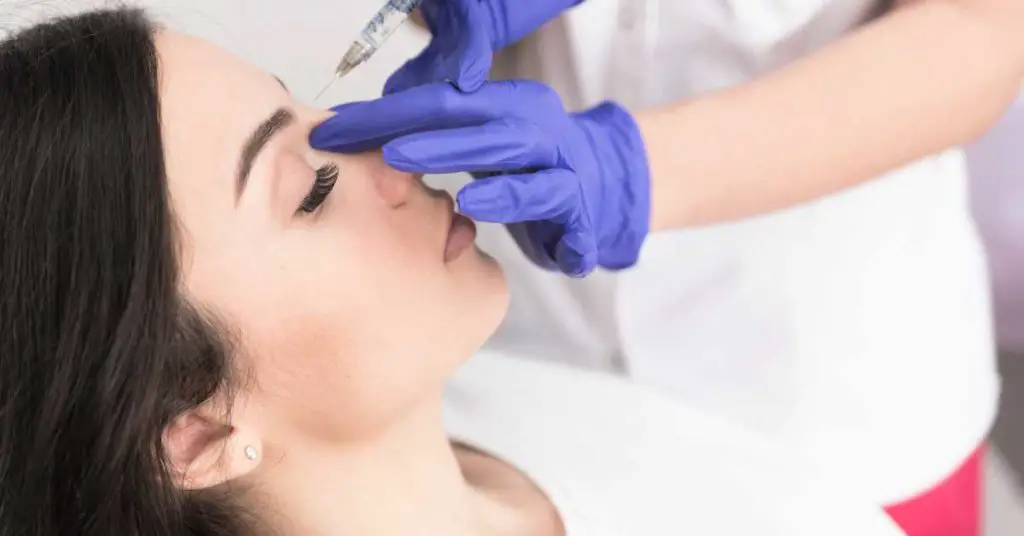Coffee is a widely consumed beverage that millions of people worldwide enjoy.
However, numerous myths and misconceptions about coffee have emerged along with its popularity.
This blog post will debunk 11 common coffee myths using science-backed evidence.
Understanding the truth behind these myths allows you to make more informed decisions about your coffee consumption.
What Are Coffee Myths?

Coffee myths are beliefs or claims about coffee that have been widely accepted but lack scientific evidence.
These myths often perpetuate misinformation and can lead to confusion among coffee drinkers.
By examining these myths, we can separate fact from fiction and better understand coffee’s actual effects on our health and well-being.
Throughout this post, we will address common coffee myths such as “coffee stunts growth,” “coffee causes dehydration,” and “coffee is addictive.”
By exploring the scientific research behind these claims, we will provide evidence-based explanations to debunk these myths and give you a more accurate understanding of coffee’s impact on your body.
So, grab your favorite cup of java, and let’s dive into the world of coffee myths as we uncover the truth with scientific evidence.
Myth 1: Coffee Stunts Your Growth
There has been a long-standing belief that drinking coffee can stunt your growth, particularly in children and adolescents.
However, scientific evidence has debunked this myth.
Multiple studies have shown that moderate coffee consumption does not significantly affect height or growth.
According to research published in the Journal of Pediatrics, no evidence supports the claim that coffee consumption in children and adolescents leads to stunted growth.
The study analyzed the growth patterns of over 6,000 participants and found no association between coffee intake and reduced height.
Additionally, a review published in the journal Nutrition Reviews examined 34 studies.
They concluded that moderate caffeine consumption, including coffee, has no adverse effects on bone growth or mineral density in children and adolescents.
It is important to note that excessive caffeine consumption, like any substance, can adversely affect health.
However, when consumed in moderation, coffee does not pose a risk to growth and development.
By debunking this myth, we can now enjoy our favorite cup of coffee without worrying about it impeding our growth. With scientific evidence, we can make informed decisions about our coffee consumption and enjoy its many benefits without any fear.
Myth 2: Coffee Causes Dehydration
Contrary to popular belief, drinking coffee does not cause dehydration.
The myth that coffee is a diuretic and leads to fluid loss has been debunked by scientific evidence.
Several studies have shown that moderate consumption of coffee does not have a significant impact on hydration levels.
Research published in the journal PLOS ONE found no significant difference in hydration levels between individuals who consumed coffee and those who drank water alone.
The study concluded that when consumed in moderation, coffee can be included as part of a healthy fluid intake.
Excessive coffee consumption, especially in combination with insufficient water intake, can potentially lead to mild dehydration.
However, this is more likely to happen with very high coffee consumption and is not a concern for most coffee drinkers.
So, feel free to enjoy your cup of coffee without worrying about dehydrating effects. As long as you stay hydrated and consume coffee in moderation, it can be a part of a balanced and healthy lifestyle.
Myth 3: Coffee Gives You Insomnia

With the popularity of coffee, there have been numerous myths surrounding its consumption.
One such myth is that coffee can give you insomnia.
However, scientific evidence debunks this myth, shedding light on the actual effects of caffeine on sleep.
Here, we will explore the truth behind this myth and help you understand the effects of caffeine on sleep.
It is important to note that the effects of caffeine can differ based on factors such as the amount consumed, the time of consumption, and individual tolerance levels.
Generally, it is recommended to limit caffeine intake, especially in the evening hours, as it may interfere with your ability to fall asleep and achieve restful sleep.
If you are sensitive to the effects of caffeine on sleep, it is advisable to avoid consuming coffee or any caffeinated beverages close to bedtime.
Decaffeinated coffee or herbal tea can be a suitable alternative to enjoy a warm beverage without compromising your sleep quality.
So, while claiming that coffee gives you insomnia is not accurate, it is essential to be mindful of your caffeine intake and its potential effects on your sleep.
By practicing moderation and understanding your own tolerance, you can still enjoy your favorite cup of coffee without sacrificing your sleep.
Myth 4: Coffee Increases the Risk of Heart Disease
There is a common belief that consuming coffee can increase the risk of heart disease.
However, recent studies have debunked this myth and shed light on the relationship between coffee consumption and heart health.
It is essential to understand the findings of these studies to make informed decisions about your coffee consumption.
Some studies have even found a potential protective effect of coffee against certain heart conditions.
For example, research published in Circulation found that moderate coffee consumption was associated with a lower risk of heart failure and stroke.
It is worth noting that the critical factor here is moderation.
Excessive intake of coffee, just like any other caffeinated beverage, can adversely affect heart health.
Therefore, it is essential to consume coffee in moderation and be mindful of any pre-existing heart conditions or sensitivities.
By staying informed about the latest scientific research, you can make informed decisions about your coffee consumption and enjoy your favorite beverage without unnecessary worry about its impact on heart health.
Always consult your healthcare professional if you have concerns or specific health conditions.
Myth 5: Coffee Causes Cancer

The belief that coffee consumption leads to cancer is a common myth that needs to be debunked.
Numerous scientific studies have shed light on the relationship between coffee and cancer.
Understanding these findings can help you make informed decisions about your coffee consumption without unnecessary worry.
Research conducted in recent years has consistently shown that moderate coffee intake is not associated with an increased cancer risk.
Some studies have even found potential protective effects of coffee against certain types of cancer.
For example, a study published in the International Journal of Cancer found that regular coffee consumption was associated with a lower risk of liver cancer.
It is important to note that moderation is key.
Excessive consumption of coffee or any caffeinated beverage may adversely affect health.
Additionally, the effects of coffee can vary depending on individual factors such as genetic predisposition and lifestyle choices.
By staying informed about the latest scientific research, you can confidently enjoy your coffee without worrying about its potential impact on cancer risk.
As always, it is advisable to consult with your healthcare professional if you have any concerns or specific health conditions related to coffee consumption.
Myth 6: Coffee Is Addictive
The belief that coffee is highly addictive is a popular misconception that needs to be clarified.
While it is true that coffee contains caffeine, a stimulant that can lead to dependence, it is essential to understand the difference between dependence and addiction.
Like other caffeinated beverages, coffee can create a physical dependence on caffeine.
This means that your body becomes accustomed to the presence of caffeine and may experience withdrawal symptoms if you suddenly stop consuming it.
These symptoms can include headaches, fatigue, and irritability. However, this is not the same as addiction.
Addiction is characterized by compulsive drug-seeking behavior and an inability to control or stop drug use despite negative consequences.
Coffee itself does not meet these criteria.
According to scientific studies, caffeine does not produce the same addictive effects as drugs like cocaine or heroin.
It is worth noting that caffeine dependence can vary from person to person based on individual factors such as genetics and lifestyle choices.
Some individuals may be more susceptible to caffeine dependence, while others may not experience any significant withdrawal symptoms.
In conclusion, while coffee can lead to caffeine dependence, it is not addictive in the same way that drugs are.
Understanding the distinction between dependence and addiction can help dispel the myth and provide a more accurate perspective on coffee’s effects.
As always, consuming coffee in moderation and considering individual sensitivities is advisable.
Myth 7: Decaffeinated Coffee Is Completely Caffeine-Free

Contrary to popular belief, decaffeinated coffee is not entirely free of caffeine.
While decaffeination significantly reduces the caffeine content, it does not eliminate it entirely.
The residual caffeine level varies depending on the method used during the decaffeination process.
Several methods are employed to remove caffeine from coffee beans, including the Swiss Water Process, direct solvent method, and carbon dioxide method.
Each method effectively reduces caffeine levels, but none can guarantee complete removal.
In the Swiss Water Process, for example, coffee beans are soaked in water to extract caffeine and flavor compounds.
The resulting flavored water, containing the flavor compounds, is run through activated charcoal filters to remove the caffeine.
The process is repeated to remove any remaining caffeine. This method claims to remove 99.9% of caffeine.
Similarly, the direct solvent method involves using organic solvents like methylene chloride or ethyl acetate to dissolve caffeine from the beans.
The solvent is then evaporated, leaving behind decaffeinated beans. This method can remove about 97% of caffeine.
The carbon dioxide method utilizes pressurized carbon dioxide to extract caffeine from the beans.
When the carbon dioxide is depressurized, it reverts to a gas, leaving behind decaffeinated beans. This method can also remove around 97% of caffeine.
It is important to note that the FDA allows decaffeinated coffee to contain up to 3% of its original caffeine content to be labeled as “decaffeinated.”
Therefore, even though decaffeinated coffee has significantly lower caffeine levels than regular coffee, it still contains some residual caffeine.
In conclusion, while decaffeinated coffee is not entirely caffeine-free, it does have significantly lower caffeine content.
The level of residual caffeine can vary depending on the decaffeination method used.
Individuals looking to minimize their caffeine intake must be aware of the residual caffeine content in decaf coffee and choose the method that best suits their preferences.
Myth 8: Dark Roast Coffee Is Stronger in Caffeine
Contrary to popular belief, the roast level of coffee does not affect its caffeine content.
Many people believe that dark roast coffee contains more caffeine with its intense flavor and robust taste than light or medium roast coffee.
However, this is a common misconception.
The level of caffeine in coffee is primarily determined by the type of coffee bean used, not the roast level.
The caffeine content remains relatively consistent whether it is a dark roast, medium, or light roast.
During the roasting process, coffee beans lose moisture, causing them to expand and develop their characteristic flavors.
While some chemical changes occur during roasting, such as the breakdown of certain compounds, the caffeine content remains relatively stable.
So, if you’re looking for a caffeine boost, it doesn’t matter whether you choose a dark or light roast.
The key factor is the coffee bean used in the brewing process.
It’s important to distinguish between taste and caffeine content in coffee.
Dark roast coffee might have a bolder and more robust flavor, but it does not necessarily translate to higher caffeine levels.
To summarize, the roast level of coffee does not affect its caffeine content.
The caffeine content will remain similar whether you prefer a dark roast or a light roast.
The myth that dark roast coffee is stronger in caffeine is debunked by scientific evidence. When craving a caffeine fix, focus on the type of coffee bean rather than the roast level.
Myth 9: Coffee Causes Digestive Issues
Coffee lovers often hear about the potential digestive problems associated with their beloved beverage.
However, it’s important to debunk this myth and shed light on the truth.
Here, we will address some common digestive issues associated with coffee and provide a scientific perspective on this matter.
Coffee contains caffeine, which is a stimulant that can affect the digestive system.
Some individuals may experience symptoms such as acid reflux, heartburn, or an upset stomach after consuming coffee.
However, these digestive issues are not solely caused by coffee itself.
The acidity level of coffee can be a contributing factor to digestive discomfort.
However, studies have shown that it is not the coffee that directly causes these issues but rather the compounds found in the coffee beans.
Roasting the beans can reduce these compounds and minimize the likelihood of digestive problems.
Another factor to consider is individual sensitivity.
Each person’s digestive system is unique, and some individuals may have a higher sensitivity to the compounds present in coffee.
It is essential to know your tolerance and make adjustments accordingly.
To mitigate the potential digestive issues associated with coffee, there are several strategies you can try.
Opting for low-acid or cold brew coffee, which is less acidic, can be beneficial.
Additionally, consuming coffee with food or in smaller quantities can help reduce the likelihood of experiencing discomfort.
In summary, while coffee can potentially contribute to digestive issues, it is not the sole cause.
The compounds present in the coffee beans, individual sensitivity, and consumption habits all play a role.
By understanding these factors and making informed choices, you can enjoy your coffee without worrying about digestive discomfort.
Myth 10: Coffee Stains Your Teeth
For coffee lovers, the fear of coffee staining their teeth is a common concern.
However, it’s important to debunk this myth and understand the role of coffee in teeth discoloration.
Here, we will address the truth behind this myth and provide a scientific perspective on how coffee affects the color of your teeth.
However, it’s essential to understand that various factors contribute to teeth discoloration, and coffee is just one of them.
Poor oral hygiene, smoking, certain medications, and other stain-causing foods and drinks can also play a role in staining your teeth.
The good news is that there are several strategies to minimize the impact of coffee on your teeth.
Regular brushing and flossing, as well as visiting your dentist for professional cleanings, can help remove surface stains and reduce discoloration.
Additionally, using whitening toothpaste or undergoing professional teeth whitening treatments can help restore the natural color of your teeth.
In conclusion, while coffee can contribute to teeth discoloration, it is not the sole cause.
By maintaining good oral hygiene and seeking professional dental care, you can enjoy your favorite cup of coffee without worrying about the appearance of your smile.
Myth 11: Pregnant Women Should Avoid Coffee Completely
It is a common belief that pregnant women should altogether avoid consuming coffee due to its caffeine content.
However, let’s examine the recommendations for caffeine consumption during pregnancy and debunk this myth.
While it is true that high levels of caffeine intake can have negative effects on pregnancy, moderate consumption is generally considered safe.
According to the American College of Obstetricians and Gynecologists (ACOG), moderate caffeine intake, which is defined as around 200 mg per day, does not appear to be associated with an increased risk of miscarriage or preterm birth.
It is important to note that caffeine is found in coffee and other beverages and foods such as tea, chocolate, and some soft drinks.
Therefore, pregnant women should consider their overall caffeine intake from all sources and take steps to limit their consumption if necessary.
Additionally, it is worth mentioning that each woman’s tolerance to caffeine may vary. Some women may be more sensitive to its effects and may need to reduce their caffeine intake further during pregnancy.
Overall, while pregnant women should be mindful of their caffeine consumption, altogether avoiding coffee is not necessary for most women.
It is recommended to consult with a healthcare professional to determine the appropriate caffeine intake for individual circumstances.
Conclusion
We must base our beliefs and actions on evidence-backed information, especially regarding myths surrounding coffee and pregnancy.
While it is commonly believed that pregnant women should altogether avoid consuming coffee, scientific research provides a different perspective.
The recommendations for caffeine consumption during pregnancy indicate that moderate intake, around 200 mg per day, does not pose significant risks to the baby.
It is crucial to consider caffeine intake from all sources, not just coffee, as it is found in various beverages and foods.
Furthermore, each woman’s tolerance to caffeine may vary, and some may need to reduce their intake further based on their sensitivity.
Pregnant women should consult with healthcare professionals to determine the appropriate caffeine intake for their circumstances.
By relying on evidence-based information, we can debunk myths and make informed decisions about our diet and lifestyle.
This promotes the overall well-being of both expectant mothers and their babies.
Remember that not all myths hold when it comes to coffee and pregnancy.
It is crucial to stay informed and seek guidance from trusted healthcare professionals when choosing caffeine consumption during pregnancy.
Related Posts: 9 Ways to Make Your Coffee Shop Visit More Enjoyable












